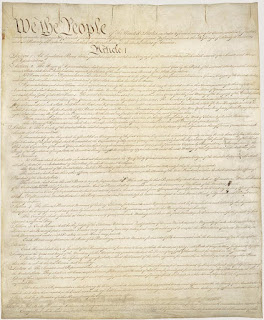EQUAL EDUCATION AMENDMENT Section 1. Equality of Educational opportunity under the law shall not be denied or abridged by the United States or any state on account of race, sex, income or place of residence. Section 2. The Congress shall have the power to enforce, by appropriate legislation, the provisions of this article.
Would an equal education amendment have sufficient support in Congress? That seems doubtful. Would the required two thirds of the states ratify it? Probably not. But just raising the issue of such an amendment would focus attention on the inequities.
Who would oppose such an amendment? In a Republican dominated House and Senate, there will be plenty of opponents. And what would be their stated grounds of opposition? That an equal education amendment establishes excessive federal control over what are properly state and local matters. But that concern seems bogus. After all, in the Bush years Republicans took the lead in the most massive federal infringement of state and local control of schooling in our history. The No Child Left Behind Act.
Probably the most potent source of opposition would come from those who benefit from the present inequalities. Barring massive new federal spending to raise raise all education funding to the same level, the more advantaged states and communities would have to forfeit their present advantage. And you can bet their representatives would oppose that.
The federal government commands the necessary resources to provide every American child with equal educational opportunity. But to do this legislators and the White House would have to rearrange national priorities. We might, for example, have to invest more in education and less in the present warfare state. This would threaten powerful defense industry types who paid to get our politicians elected in the first place.
That gets us to the only real advantage of putting an Equal Education Amendment on the table; it forces hands and reveals agendas. It puts a question out there that most politicians dearly want to dodge. The question is: What is more important, providing every American child with equal educational resources, or serving the special interests you are presently beholden to? It’s high time that we ask that question. But don't hold your breath. -- GKC

No comments:
Post a Comment